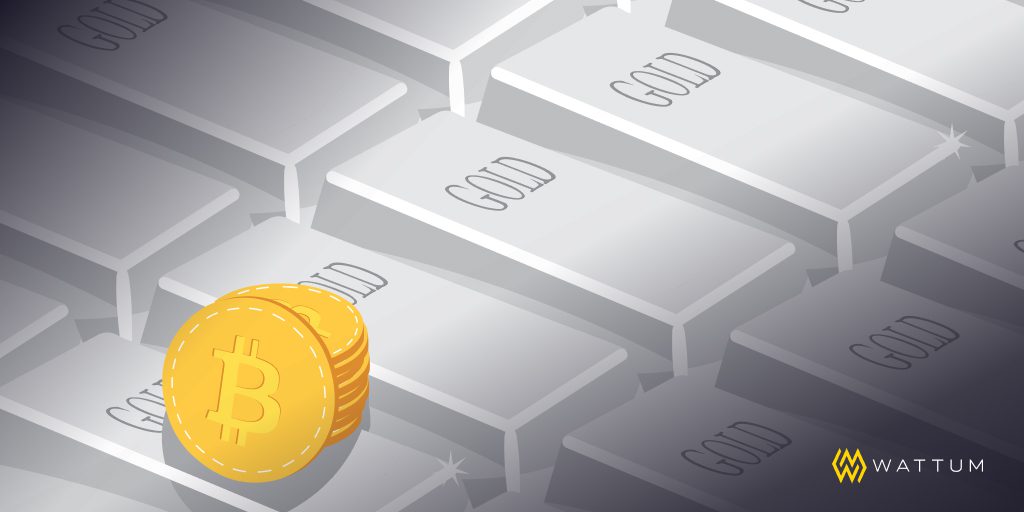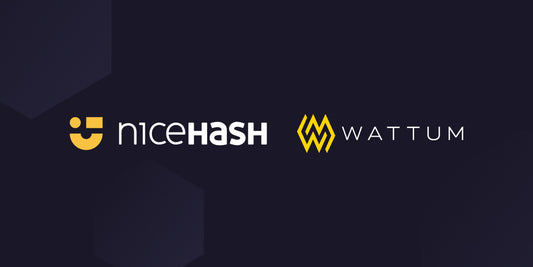The Bitcoin/gold comparison has proven an enduring one, persisting ever since the earliest days of the Bitcoin ecosystem. “Digital gold” and “gold 2.0” have for years been commonly used to describe Bitcoin, and for many valid reasons; indeed, the term “mining” actually arose as a figurative nod to the process of extracting gold or other commodities and thus putting them into circulation. Unlike fiat currencies, Bitcoin and gold are both notable for their overall fixed supplies, and share several other key monetary attributes like durability, divisibility, fungibility, portability, and scarcity. And yet the comparison between Bitcoin and gold only goes so far, in large part because Bitcoin actually outdoes gold in terms of some of these very same characteristics, in addition to offering certain other benefits that gold simply doesn’t provide.
Gold has seen a widespread perception of value and use for thousands of years across human history, to the point that it’s easy to forget that, like fiat, gold doesn’t necessarily contain any intrinsic economic or aesthetic value in its own right. Yes, like Bitcoin, gold derives some of its value from the work invested in mining it, in its own form of “proof of work” – and yes, gold can be, and often is, perceived as valuable and beautiful, and is used to make some appealing and useful things. But much of gold’s unquestioned worth and desirability is simply embedded into the collective human psyche, and has been for millennia. Bitcoin’s value is less universally recognized (for now) but has come a very long way in this respect in just a little more than a decade – and to be sure, has accrued its value more quickly than gold ever has over any given decade of its own history. From here on out, is it just a matter of time before Bitcoin becomes similarly unquestioned as a valuable and desirable asset?
Good as Gold
One of the most common cases for both Bitcoin and gold is their function as safe-haven assets, stores of value, and hedges against fiat inflation. This much is generally true, as both have proven themselves as appealing assets to hold during times of high inflation and/or widespread political turmoil – see: right now, on both fronts – but it’s also a very limited argument, and one that flatters gold but sells Bitcoin’s larger potential short. To start, Bitcoin has recently outperformed gold since the Consumer Price Index (CPI) for June rose to 9.1%, its highest level in more than forty years: Bitcoin is up more than 16% since then, while gold is down around 1%, which brings some inflation hedge assumptions into question. And in reality, Bitcoin actually has much more to offer than as just a store of value or an inflation hedge, and its real-world use cases are only growing – and in the process, becoming more and more apparent to the masses.
Bitcoin actually surpasses gold in terms of many of the same qualities that gold enthusiasts cite as reasons to mine, buy, or hold gold. Gold is tremendously durable, of course, as all the gold that has ever existed still exists in some form, but the same can be said of Bitcoin. One counterclaim is that Bitcoin can be forever and irretrievably lost, but the same can be said of gold – as evidenced, for example, by the unknown amount of gold sitting at the bottom of the ocean somewhere. As for divisibility and fungibility, Bitcoin measurably improves on gold in both of these respects. Sure, gold can be melted down into smaller forms, but the process is costly, difficult, and inaccessible to most people. A single Bitcoin, on the other hand, is readily divisible by design, and breaks down into any denomination of Satoshis – one Satoshi being one-hundred-millionth of a single Bitcoin – by anyone, at any time, for any purpose. On top of this, the very fungibility of gold has even come into question as of late as the US and other G7 nations have taken steps to ban the importation of gold of Russian origin.
Bitcoin is much more portable than gold, though – and not just more physically portable by any single given individual, but also portable in the sense of being sendable and receivable to any other given individual. Bitcoin can be transferred around the world to any address more or less instantly, whereas gold needs to be physically carried and stored, and can be easily lost, stolen, or confiscated with little recourse. Gold can also be more readily counterfeited, and thus needs to be tested and verified – essentially, a process that already happens around the clock across the Bitcoin network. In a similar way, Bitcoin also improves on gold as a potential form of payment and will only continue to do so moving forward as the Lightning Network further expands at a rapid pace. Meanwhile, attempting to pay for almost any good or service with a bar of gold will, it’s safe to assume, not work out well for the buyer.
Even the overall scarcity of gold is typically overstated. True, gold retains a relatively stable value because of its overall fixed supply as a natural resource, since there is a finite amount of gold in the world; but a large amount of gold still remains underground – not all of which has even been discovered – and often only because it’s prohibitively uneconomical to mine it based on current market conditions. But should the cost of gold shoot up at any given time, the circulating supply could quickly increase, and indeed this has happened at various points throughout history. Bitcoin, on the other hand, will only top out at a fixed supply of 21 million, as dictated by the Bitcoin protocol. In addition, a lower percentage of all gold has already been mined than has all Bitcoin. Whereas the supply of gold is functionally and practically fixed, the supply of Bitcoin is mathematically and algorithmically fixed.
Better than Gold
The ongoing war in Ukraine offers just one important instance of a real-world use case where Bitcoin actually far outshines gold – indeed, one in which gold stands as largely irrelevant. Bitcoin has offered an ideal means to funnel humanitarian aid to Ukrainian citizens inside the conflict zone, one for which the physical limitations of gold simply don’t allow. At the same time, for those who have fled Ukraine, Bitcoin has offered an ideal method of transporting assets that can’t be physically confiscated across international borders. In theory, both assets would seem to offer a safe haven for those in this type of situation, but in practice, Bitcoin works to transcend space, while gold mostly just takes it up.
Another consideration is that although Bitcoin mining continues to face backlash for its perceived environmental impacts, gold mining seems largely immune to such criticism by now, despite being a destructive, extractive industry by any definition. While many claim that Bitcoin mining is more environmentally harmful than gold mining, this assertion is often based strictly on electricity consumption rather than overall carbon footprint, and doesn’t take into account the various other forms of waste and pollution generated by gold mining. By many estimates, gold has both a larger electricity consumption and total carbon footprint than Bitcoin does, and yet this is not widely perceived as the case. One argument often heard claims that the power used for Bitcoin mining could be employed for something more “productive” – as if the creation of a global, decentralized, sound currency isn’t productive enough – and yet over 50% of global gold demand comes from jewelry production, which, although a perfectly valid market, is still largely a cosmetic one.
Though the Bitcoin/gold comparison remains apt in some ways, and has even helped many to better understand Bitcoin within a more familiar context, perhaps it’s better to think of Bitcoin less as a digital equivalent to gold, and more as a modern enhancement of many of gold’s best monetary qualities. Bitcoin arguably exists, at least in part, as an extension of and improvement on commodities like gold, though one created specifically for the digital age and the modern global economy – and one designed with many of the flaws and problems of both in mind. Simply put, although the world already had gold, it needed Bitcoin.
As such, perhaps Bitcoin and gold stand less as competitors or counterparts than as assets with much different narratives across very different timelines, and with Bitcoin’s having essentially just begun. Though it still has a secure place in the collective mind – and, more tangibly, across economies and portfolios worldwide – gold is very much a product of an old-world mentality, as well as the old world’s challenges and needs. Bitcoin, on the other hand, which too has increasingly carved out its own place in the global awareness since its inception, was created for the modern world and where it’s headed. Both assets will continue to play a vital role in the years ahead, but only for Bitcoin is this likely still just the beginning.
Golden
Wattum believes it’s worth mining and accumulating a sound, decentralized digital asset for the digital world that we live in. Mining Bitcoin offers a means to capitalize on many of the benefits that Bitcoin shares with gold, in addition to several others that Bitcoin alone offers. While both Bitcoin and gold can potentially provide a store of value and a hedge against fiat inflation – though Bitcoin may yet overtake gold in some of these respects – only Bitcoin offers a growing list of real-world use cases that serve to address many of the most pressing financial obstacles currently faced by millions of people worldwide. And only Bitcoin was designed specifically for the modern world, and for the future world as well.
As a complete Bitcoin mining solutions provider, Wattum can partner and collaborate with you on all aspects of your Bitcoin mining journey, whether you’re just starting out or looking to grow your mining operations. With the Bitcoin price still down, now makes for a perfect time to launch or expand, as spot pricing ties the cost of most ASIC mining equipment to the price of Bitcoin. We carry the latest-gen ASIC mining equipment, mobile mining containers, transformers, and also offer hosting, management, and buildout services. Get in touch with a Wattum sales representative to learn more today.



